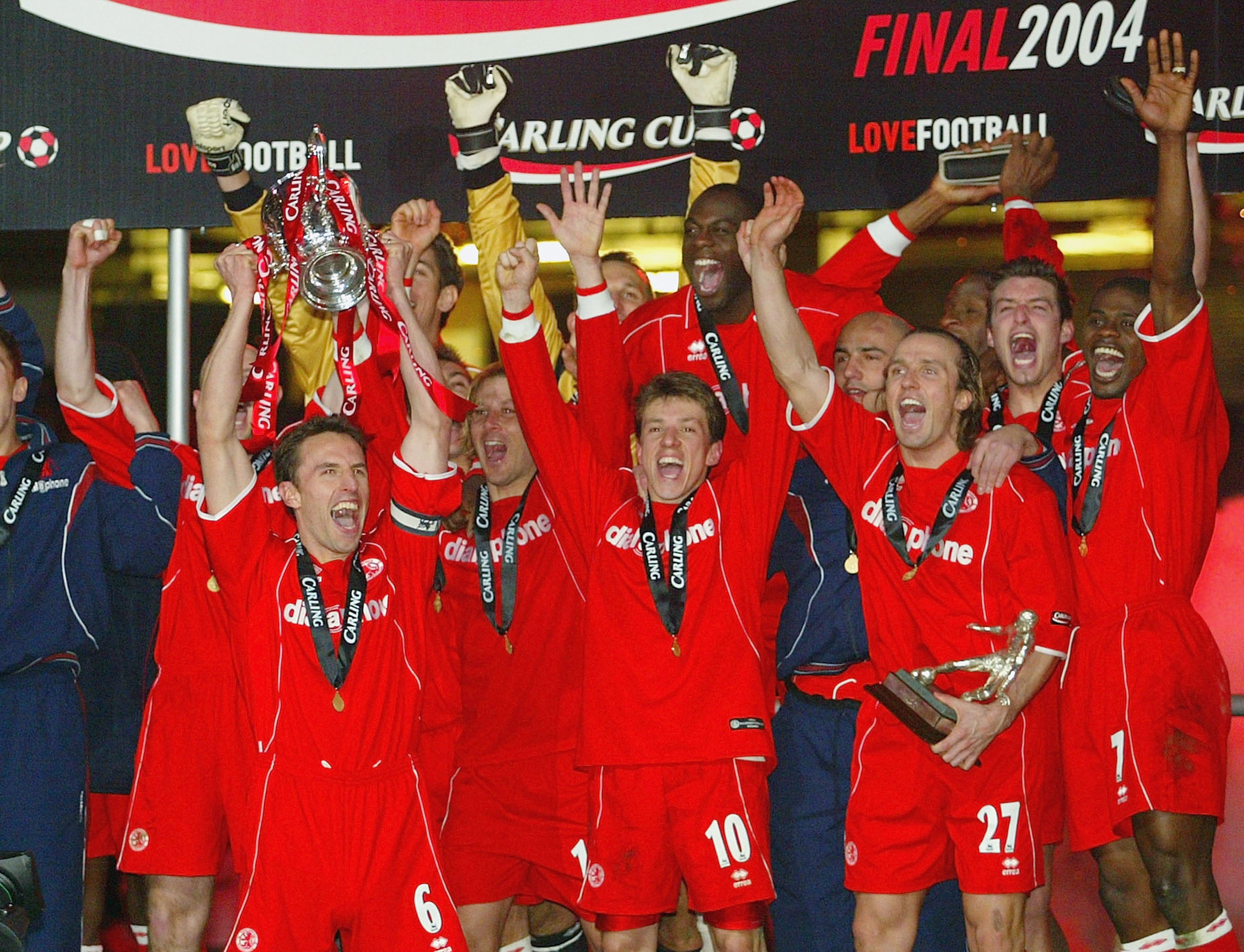De Gea's saves may well catch the eye, but there's so much more to his triumphant rise
First-rate reflexes and camera-pleasing stops are just the tip of the iceberg for Man United's No.1, writes Seb Stafford-Bloor...
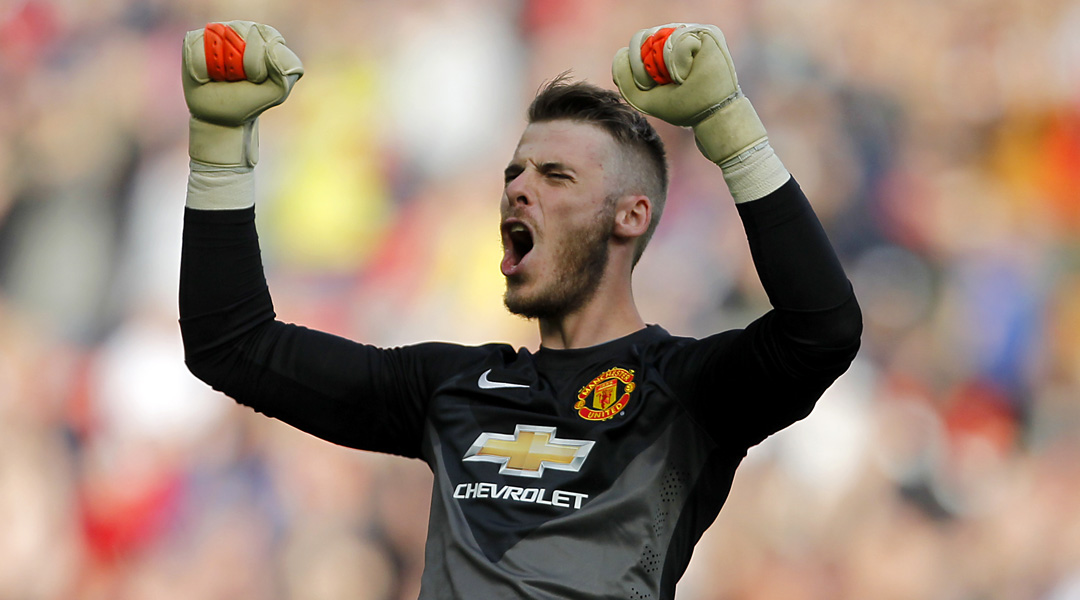
The best features, fun and footballing quizzes, straight to your inbox every week.
You are now subscribed
Your newsletter sign-up was successful
Want to add more newsletters?

Five times a week
FourFourTwo Daily
Fantastic football content straight to your inbox! From the latest transfer news, quizzes, videos, features and interviews with the biggest names in the game, plus lots more.

Once a week
...And it’s LIVE!
Sign up to our FREE live football newsletter, tracking all of the biggest games available to watch on the device of your choice. Never miss a kick-off!
Join the club
Get full access to premium articles, exclusive features and a growing list of member rewards.
Goalkeeping occupies a strange place in football's psyche. It's an unexplored position and, even at a professional level, the components which constitute excellence are largely overlooked.
Yet playing in goal has forever been equated with uselessness, and from childhood onwards the position has been a dumping ground for whoever was the biggest outfield liability. That mentality never really goes away.
Across any weekend, punditry studios are full of experts offering reductive assessments of goalkeeping displays. The park may have been replaced by a stadium and the dog-walker may be a 50,000-strong crowd, but judgement is similarly one-dimensional and based on whether or not a goal was scored.
There's an easy explanation for this: very few of us have kept goal beyond begrudgingly wearing the gloves for 10 minutes during a kickabout. Thus, can we really relate to them in the way we can an outfielder? After all, it’s a position most of us have spent our lives trying to stay away from.
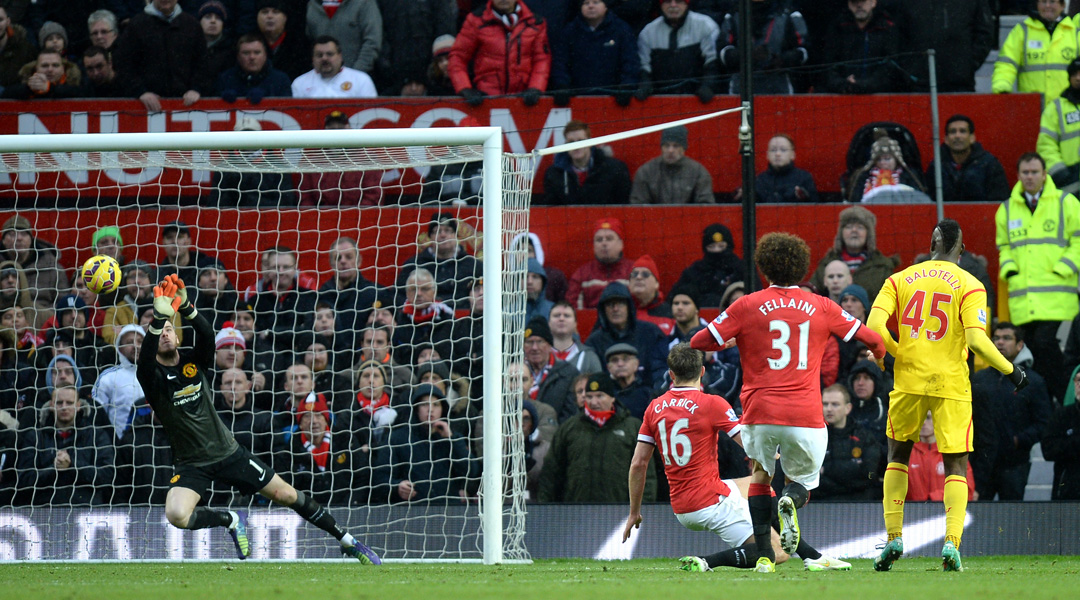
Succeeding Shilts
This Premier League season, David de Gea's form for Manchester United has been one of the principal reasons why Louis van Gaal's debut campaign has been so acceptable. The Spaniard, so heavily criticised during his first 18 months in England, has often covered up United's defensive fragility and will almost certainly be a frontrunner for the PFA’s Player of the Year award.
SEE ALSO PFA Player of the Year award: 10 men with a case for making the shortlist
The best features, fun and footballing quizzes, straight to your inbox every week.
Should that happen, not only will it represent a significant milestone in the player’s career, but would perhaps validate the position as a whole – De Gea would be only the third goalkeeper to win the award, and the first since Peter Shilton in 1978. It's a subtle slight on the role’s perceived importance.
Interestingly, as pronounced as De Gea’s progress has been, he is still generally viewed in a two-dimensional way. To the majority, his performances are the sum of the saves he makes and his improvement is deemed to be almost entirely reflex-reliant.
But return to 2009 and revisit his debut La Liga season at Atletico Madrid: the physics-defying shot-stopping ability for which he is now so renowned has actually been a constant throughout his career.
From the moment he was elevated into professional football, De Gea has regularly demonstrated his staggering agility and freakish reach.
He didn’t acquire that ability in this country, though that's not to ignore his development at Carrington: on a daily basis, goalkeepers perform a variety of exercises to fine-tune their reflexes.
And that’s not just limited to generic shooting practices. Coaches will use short-distance drills to work on point-blank reaction times. Similarly, hidden-ball routines, where the keeper is required to turn into the path of a travelling ball, serve a similar purpose and help to maintain a healthy reaction speed.
These are all staples of a goalkeeper’s daily routine, but they’re not the extent of it – particularly for one with a pronounced weakness in his game.
Blinded by the lights
In summer 2011, De Gea completed his transfer to Manchester United having already played 84 games for Atletico Madrid and acquired good experience for his age. Yet initially he struggled; there was a palpable fragility to his goalkeeping and he laboured amid stylistic differences.
There were intangibles involved in that teething process, and the Old Trafford lights were probably a shade too bright for him in the beginning, but those early months can’t just be labelled as an adjustment period.
The erroneous assumption is that goalkeepers in the Premier League face a higher volume of crosses than those abroad, implying that any incoming Spanish shot-stopper is likely to face a more acute examination of his aerial ability. But that's not really true: in 2013/14, more crosses were actually attempted in La Liga (13,007) than in England's top flight (12,709), according to Opta data.
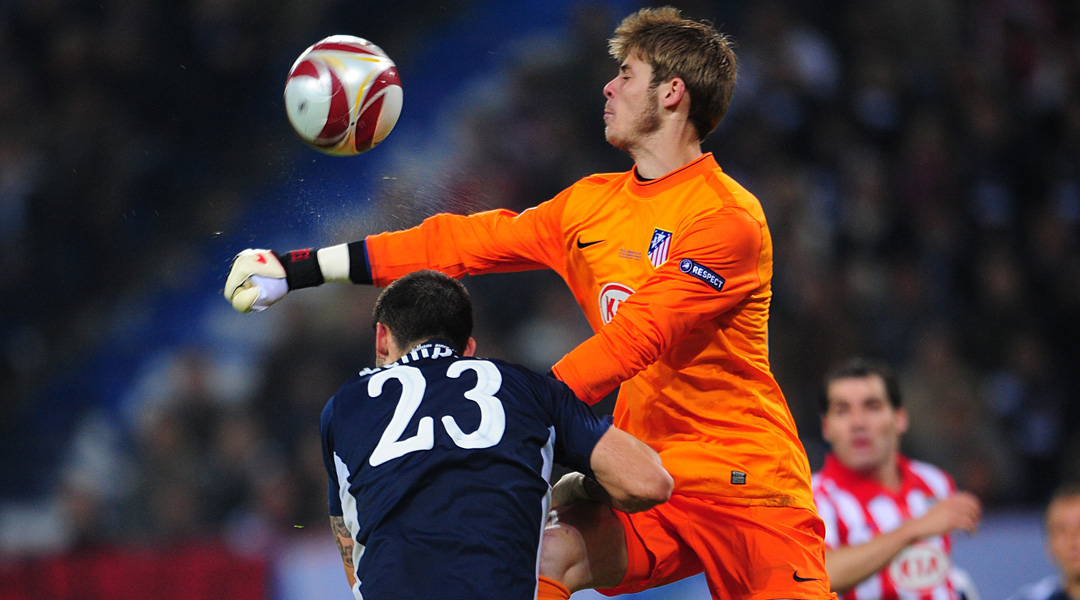
The difference is in the detail. An English penalty box is a more physical environment and the contact allowed between players is typically greater – even with goalkeepers, who are now generally assumed to be more protected than they should be. That clearly presented an initial problem for De Gea. He was 20 at the time of his arrival, but still possessed the frame of a teenager and looked vulnerable whenever pressured.
Buns of Steele
In a Daily Mail interview from October 2014, Eric Steele – De Gea’s goalkeeping coach between 2011 and 2013 – recalled his early days with the player when the focus was directed to his physical conditioning.
"He was in the gym at 9:30am three times a week," said Steele. "The early part of the week would be core work and strength. Forty eight hours before the game it would be speed and power.
"We would do afternoon sessions twice a week and then he would be studying English and have midweek games. We had to be careful not to burn him out."
The importance of core strength is obvious, the value of language less so. A goalkeeper shoulders a lot of organisational responsibility, meaning his value isn't purely defined by his physical activity.
In crossing situations, in addition to actually claiming or clearing the ball, he has to pre-empt his action to avoid creating uncertainty in his own defence.
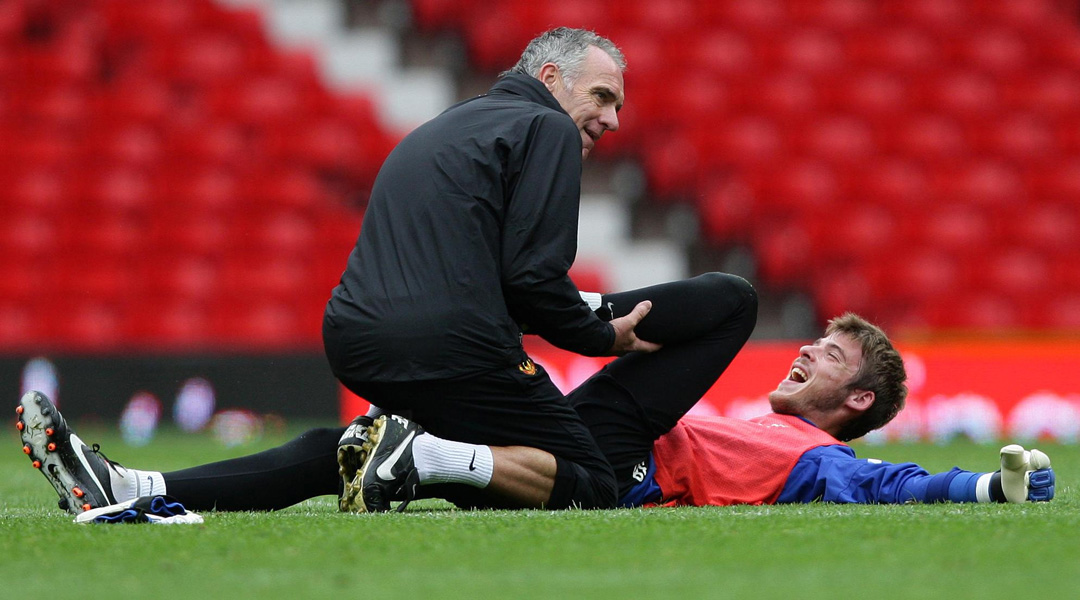
That’s a tough balance for any player, even one with confidence in his own ability. But for someone adjusting to a new league in a new country, playing for one of the most pressured club sides in the world, it must have been trying. And that’s probably where the public’s blank spot of appreciation lies.
This wasn’t a question of force-feeding the Spaniard protein and carbohydrates, locking him in the weights room and then watching him fill out into a Premier League-ready player. Rather, it will have been a carefully constructed regime designed to methodically refine weaknesses.
Drilled to win
While there's no way of replicating match conditions in training, coaches often simulate crossing situations by placing several goalkeepers within the six-yard box and asking them to compete for the same ball. Before the delivery, a number corresponding to one of the players will be called out, and he will try to claim the ball while the others affect the role of attacking opponents.
Within the same drill, keepers can be presented with multiple balls from different delivery points, again with constructed obstacles and physical challenges to replicate the variety that occurs in matches.
That’s the hardest part of goalkeeping. One of the reasons why the position requires so much experience is because the learning curve in this department is so steep. Even for English goalkeepers, who have grown up in rough-and-tumble six-yard boxes, mastery of this area is elusive. There are dozens of variables – the pace and trajectory of the ball, the conditions, opponents – and no two situations are ever the same.
Of course, none of this would have been entirely new to De Gea, but that part of his game was examined in far more detail in England and his training would likely have been adjusted accordingly.
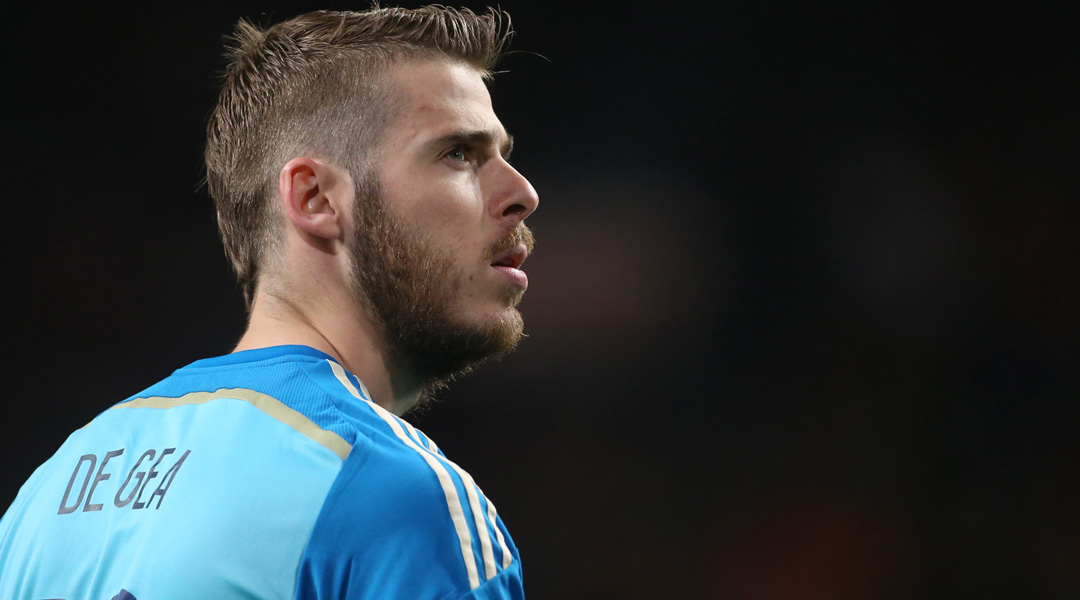
De Gea's growing importance to Manchester United has probably been exaggerated by their defensive fragility, and by the number of shooting opportunities they regularly afford opponents.
Regardless, the Spaniard's improvement is still quantifiable: in 2012/13 he punched 23 times; by 2013/14 that number had dropped to 14, and in the current season it's down to just five. Compare that with Liverpool's Simon Mignolet (30) and Manchester City's Joe Hart (25) this season, for example.
That may only relate to a single aspect of his game, but it's relevant beyond the six-yard box. The commentator’s cliché is annoying but true: uncertainty really is infectious among defenders, and every great back four in history has been anchored by a decisive goalkeeper.
The dramatic, television-pleasing part of De Gea's game is well worth applause, but that shouldn't detract from how much more reliable his foundations have become. He’s literally broader, certainly, but he’s also a figuratively larger presence now thanks to the admirable improvements to his fundamentals.
As De Gea continues his ascent, remember that it isn’t just his reflexes taking him there.
SEE ALSO PFA Player of the Year award: 10 men with a case for making the shortlist
Seb Stafford-Bloor is a football writer at Tifo Football and member of the Football Writers' Association. He was formerly a regularly columnist for the FourFourTwo website, covering all aspects of the game, including tactical analysis, reaction pieces, longer-term trends and critiquing the increasingly shady business of football's financial side and authorities' decision-making.
 Join The Club
Join The Club










